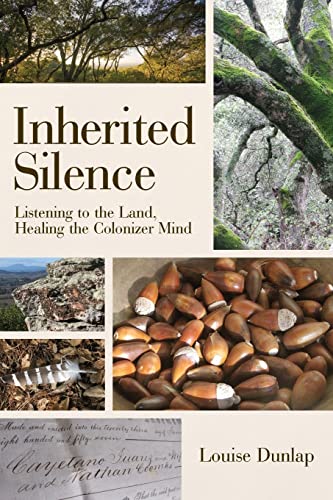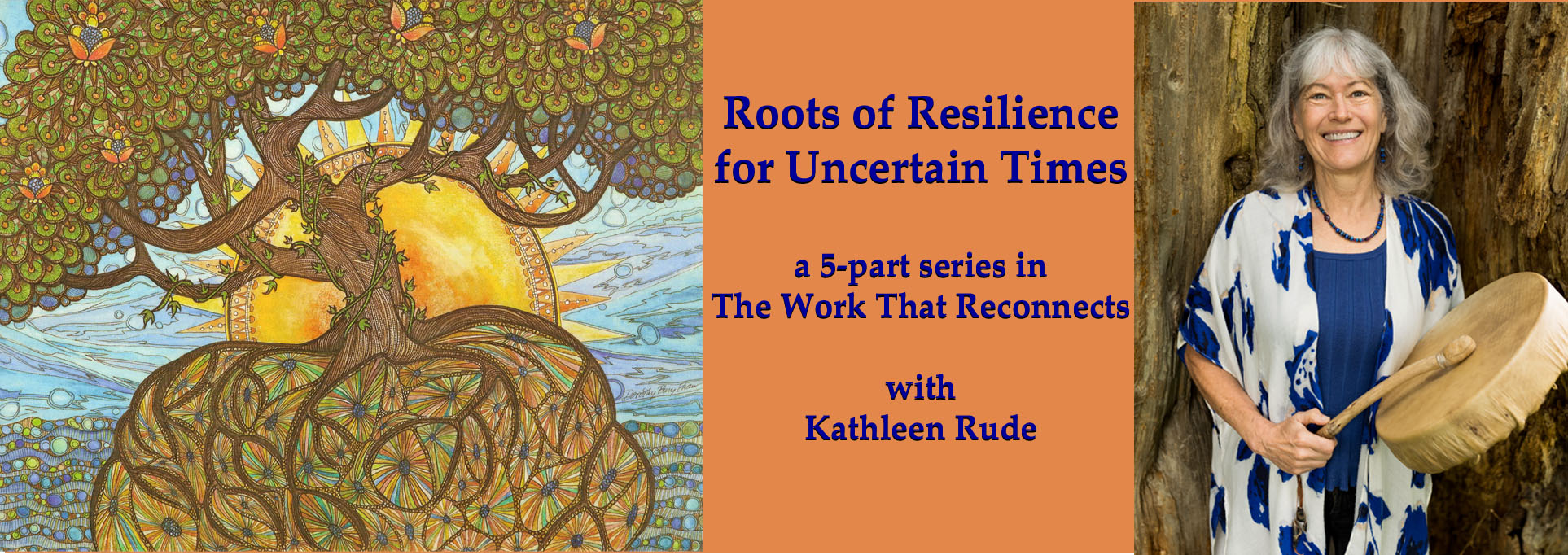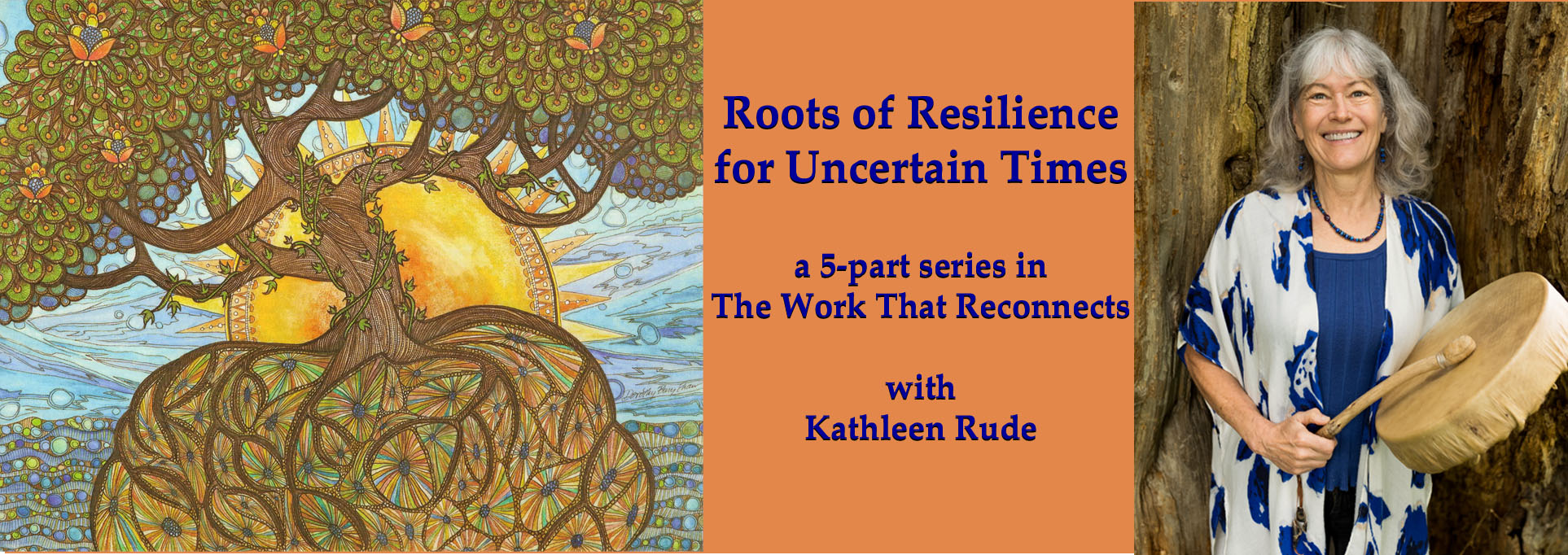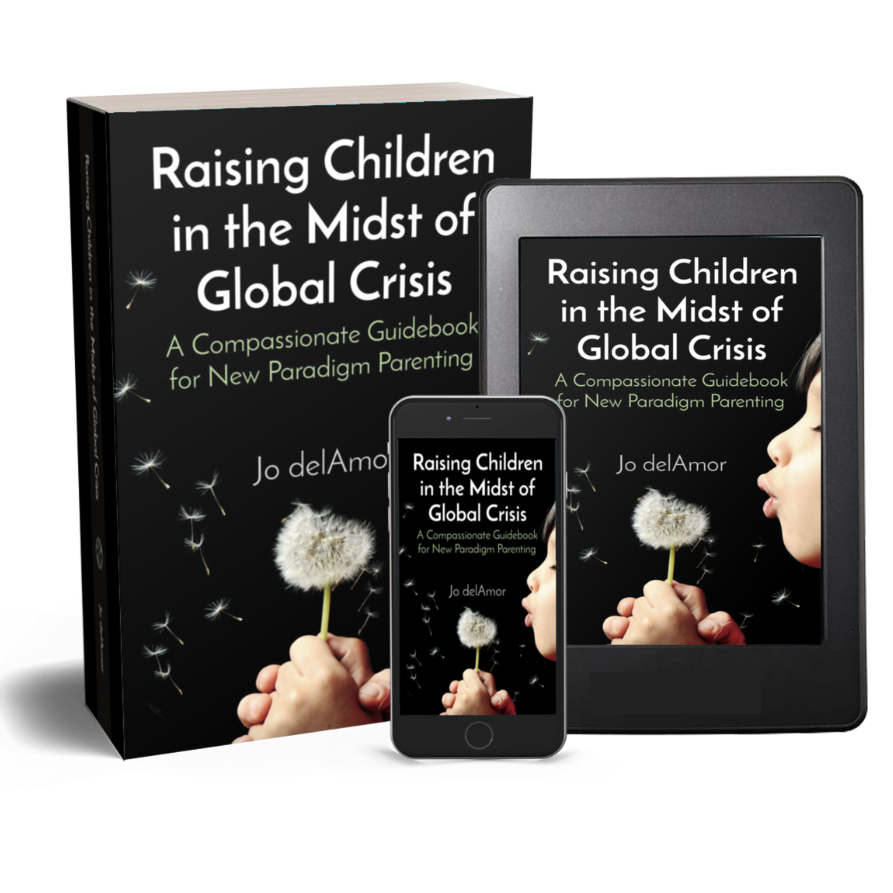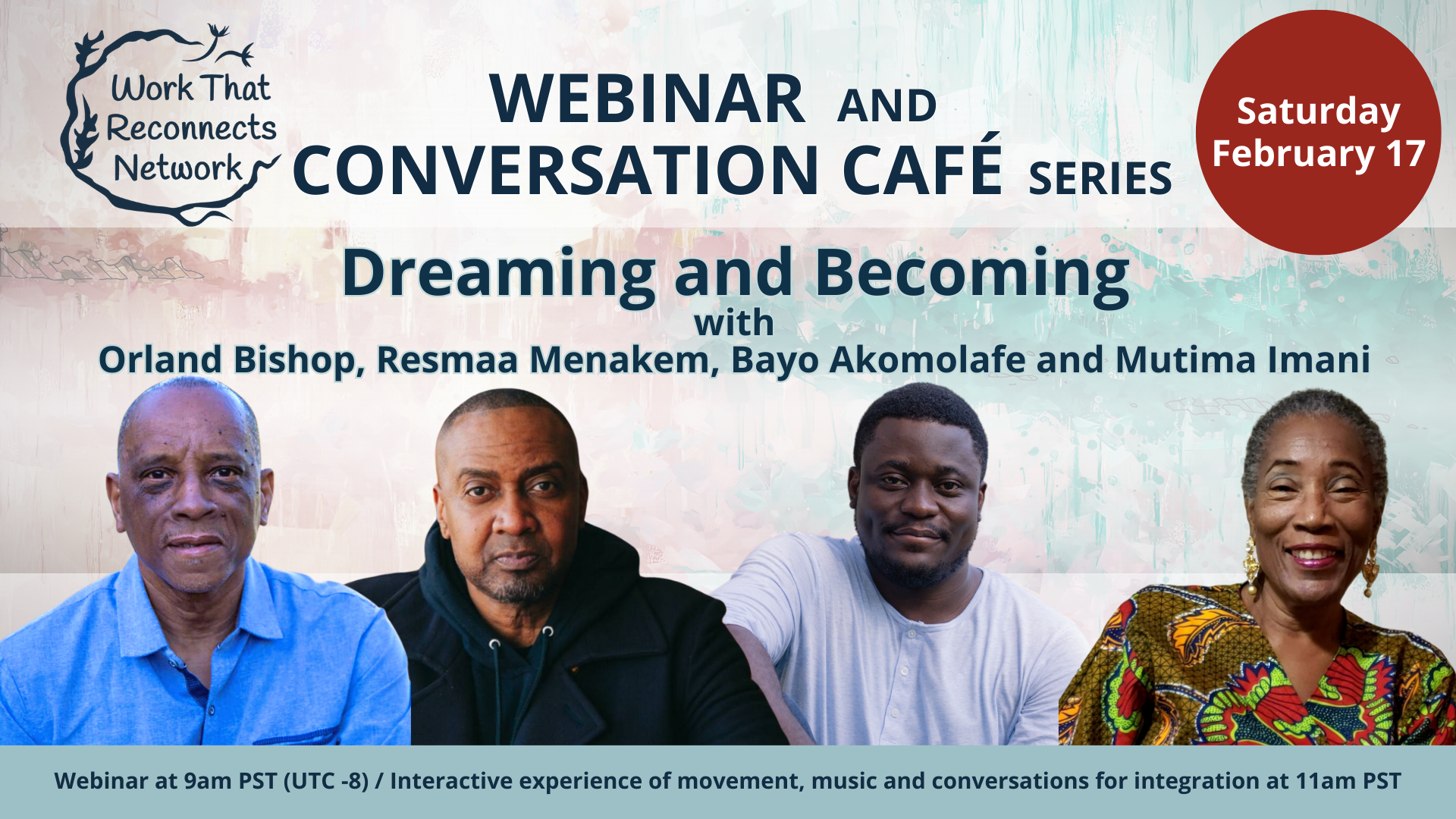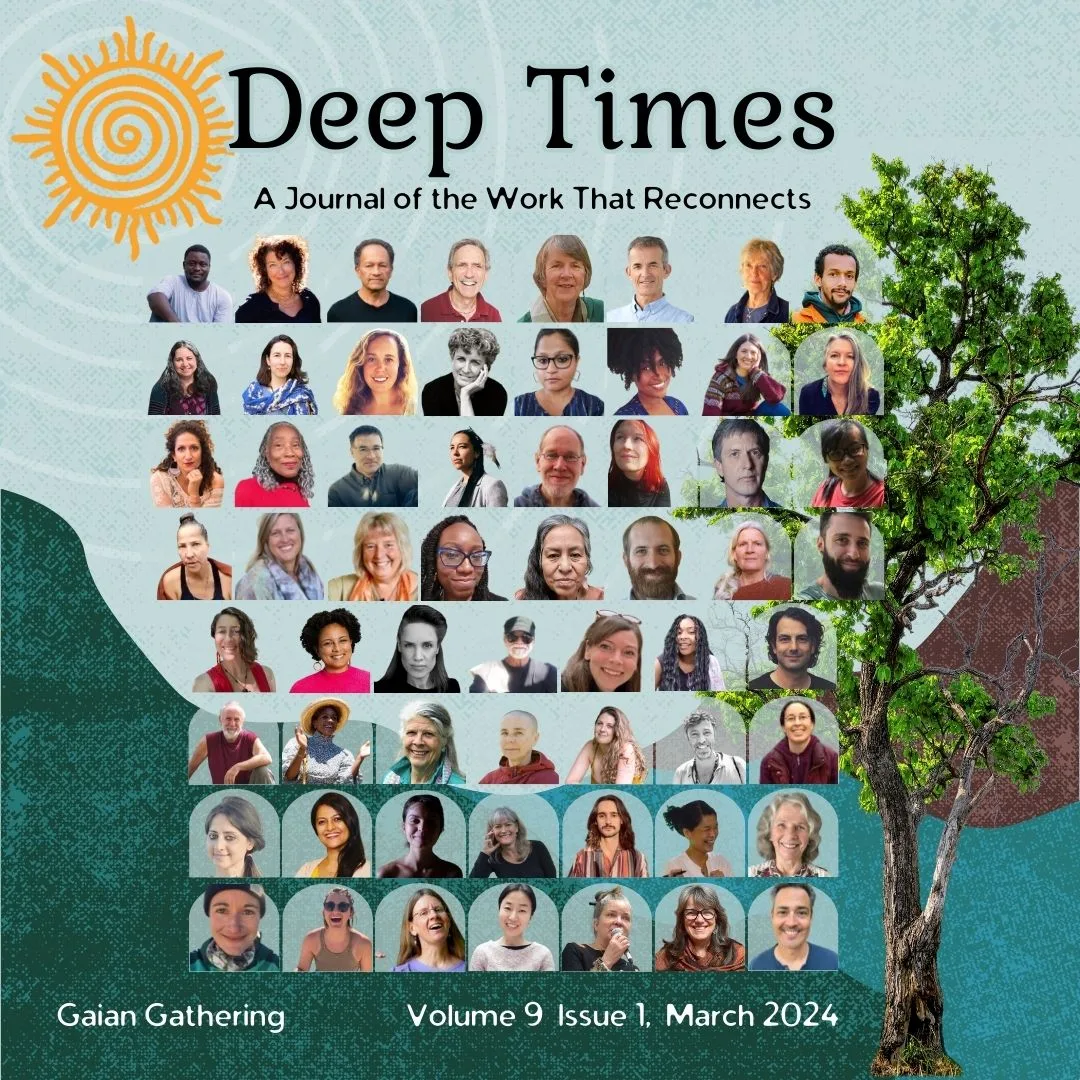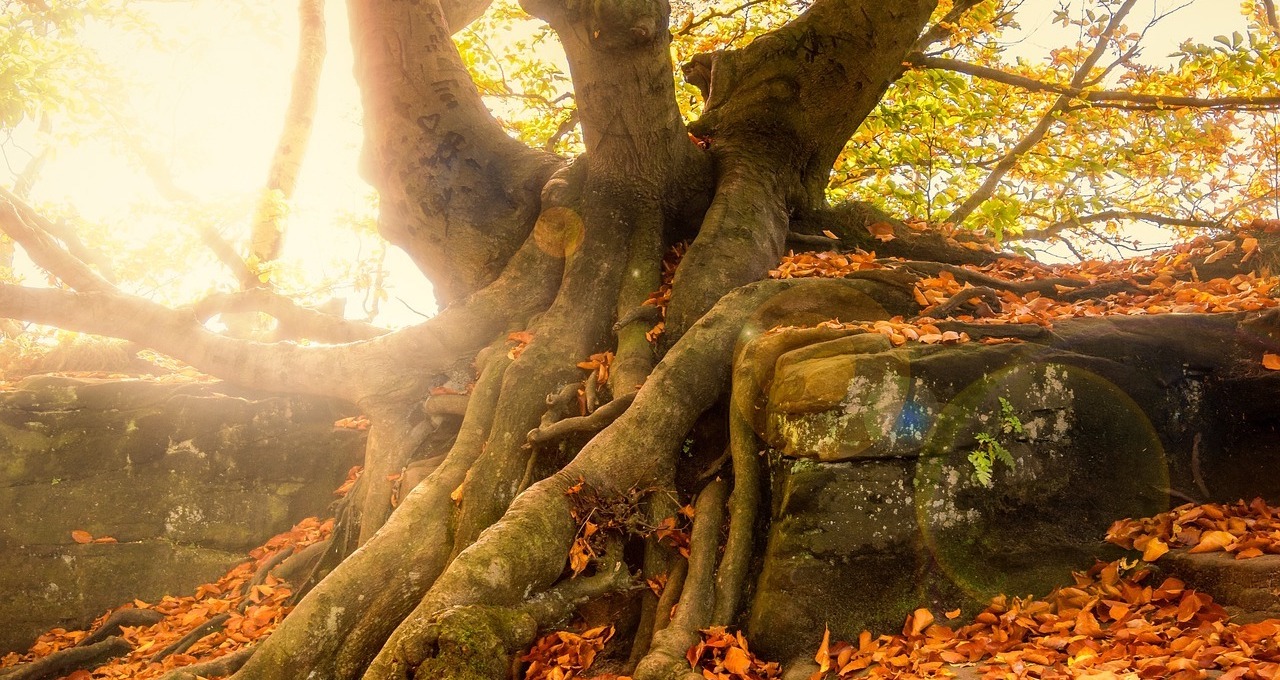Date:
08/01/2017
- Training Material
- Analysis/Framework
- Transforming Our Relationship with Power
- Undoing Oppression
- Emerging Facilitators
- Facilitators
- BIPOC

Quick Tips for Intersectionalizing the Work That Reconnects…
as adapted from Sarah Nahar’s article “Intersectionalization of the Work that Reconnects”
Here are some quick tips for intersectionalizing the Work That Reconnects if you’re a facilitator.
In each workshop you prepare:
- Acknowledge the pre-colonial/traditional caretakers/occupants of the land on which the workshop is held. If possible, contact local descendants and community leaders to ask permission to hold ceremony (a WTR workshop) on the land. Make sure to know something about the current reality of decolonial and solidarity struggles of the moment, even if you’re not involved directly. It’s an important way to recognize that indigenous people are not only “romantic relics of the past.”
- In your welcoming remarks, acknowledge the folks in the room from the various walks of life that are there. A welcome can include acknowledgement of visible uniqueness (gender, race/ethnicity, language, ability, age, size, nation/tribal/diaspora status) and less visible differences (medical conditions, religious adherence, class, education level, profession, sexual/relational orientation).
- Do group agreements in a fashion that allows people to say “ouch” if something oppressive impacts them. By saying “ouch,” it gives a way for impacted folks not to be silent, but also doesn’t necessarily derail the conversation. If the speaker wants to circle back to the person who said “ouch,” they can, and the impacted person can say a sentence about the impact. The speaker may respond only by saying “thank you for sharing.” As a facilitator, flag if you want to delve deeper into that at another time, unless you feel capable of tackling it then. Ask for help from someone to get another perspective.
- Create a mechanism for healthy conflict resolution, so there is not a temptation to bury or minimize conflict that arises in the group. Conflict, when handled well, can be a generative force for human connection and solidarity building.
- Alert people in your introductory and registration materials that you seek to make your workshop an anti-oppressive space as we awaken to ourselves as Gaia, and include a glossary of terms you may be using that might be unfamiliar to folks (e.g., decolonization, intersectionality, oppression, totalitarianism, white supremacy).
- Play with expanding the Deep Time stage of the spiral. Facilitate an exercise that emphasizes redeveloping kinship ties that have been broken by Industrial Growth Society (IGS) forces. Know that as we name and heal the wounds that present in this generation, we not only impact the future but we help heal ancestral wounds, as well.
- Attend an undoing oppressions training, and reflect on your favorite activity. See if you can think through a way to integrate that activity into your WTR facilitation, keeping WTR’s methodological integrity but expanding its ability to grapple with human difference and privilege, to help examine the different ways the IGS impacts and/or “empowers” us, and what to do about it.
- Practice articulating the connections between anti-racism, decolonization, and environmental advocacy. Foreground a story about the decolonial struggle for ecological justice.
- (Advanced) Try identity-based caucuses, around race/ethnicity or another social location that significantly influences how one experiences the world and copes with the impacts of the IGS. This will give a chance, for example, for all the people of color to have the chance to see each other and go deep on some of our stuff (what a gift as we do not have those spaces often enough!). In white caucuses, this can be a time to grieve the impacts of white supremacy on the souls of you and your children, and sort through the shame and anger that’s coming up that you may have toward yourself, other whites and the system itself. It is a place to find accountability partners to counter defensiveness and strategize change, and most importantly a white caucus is a great space to both get more resources and cultivate courage and self-love.
I hope these tips are helpful. Joanna Macy suggests not having more than five things to remember so it fits on your hand. I admit remembering all 9 of these will take two hands (with one digit left to give yourself a thumbs-up!)
Please feel free to write Sarah with other tips.
